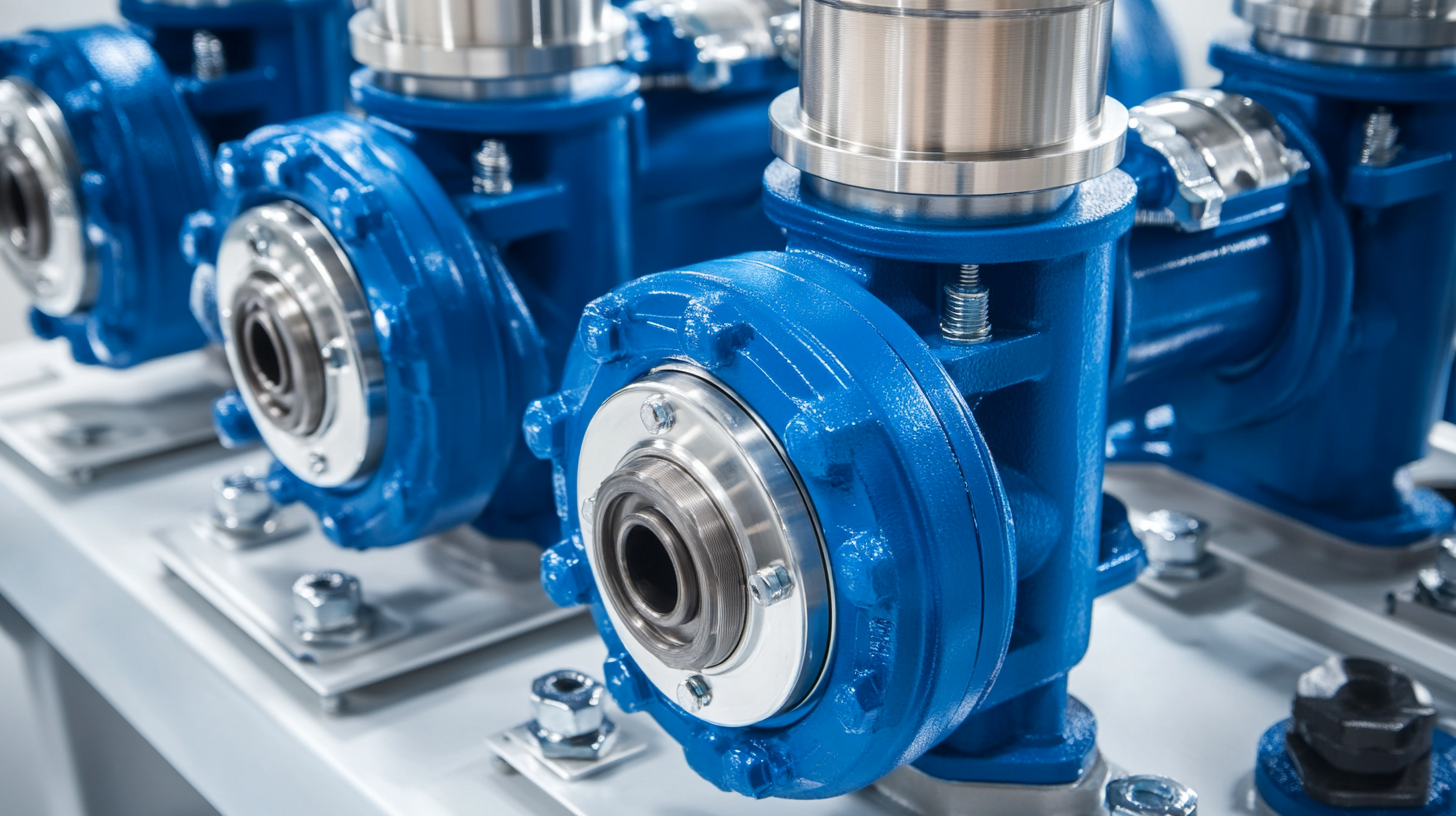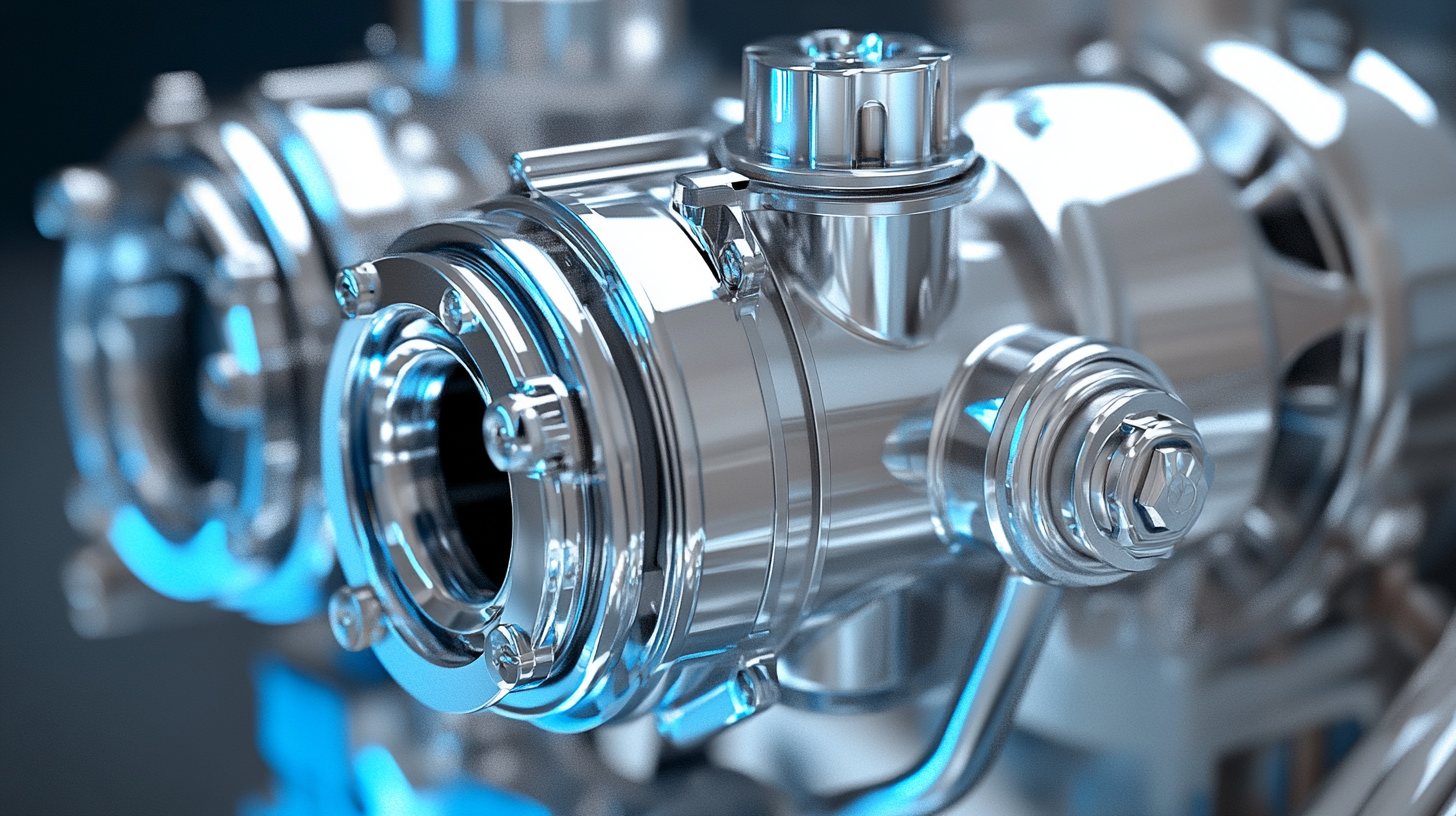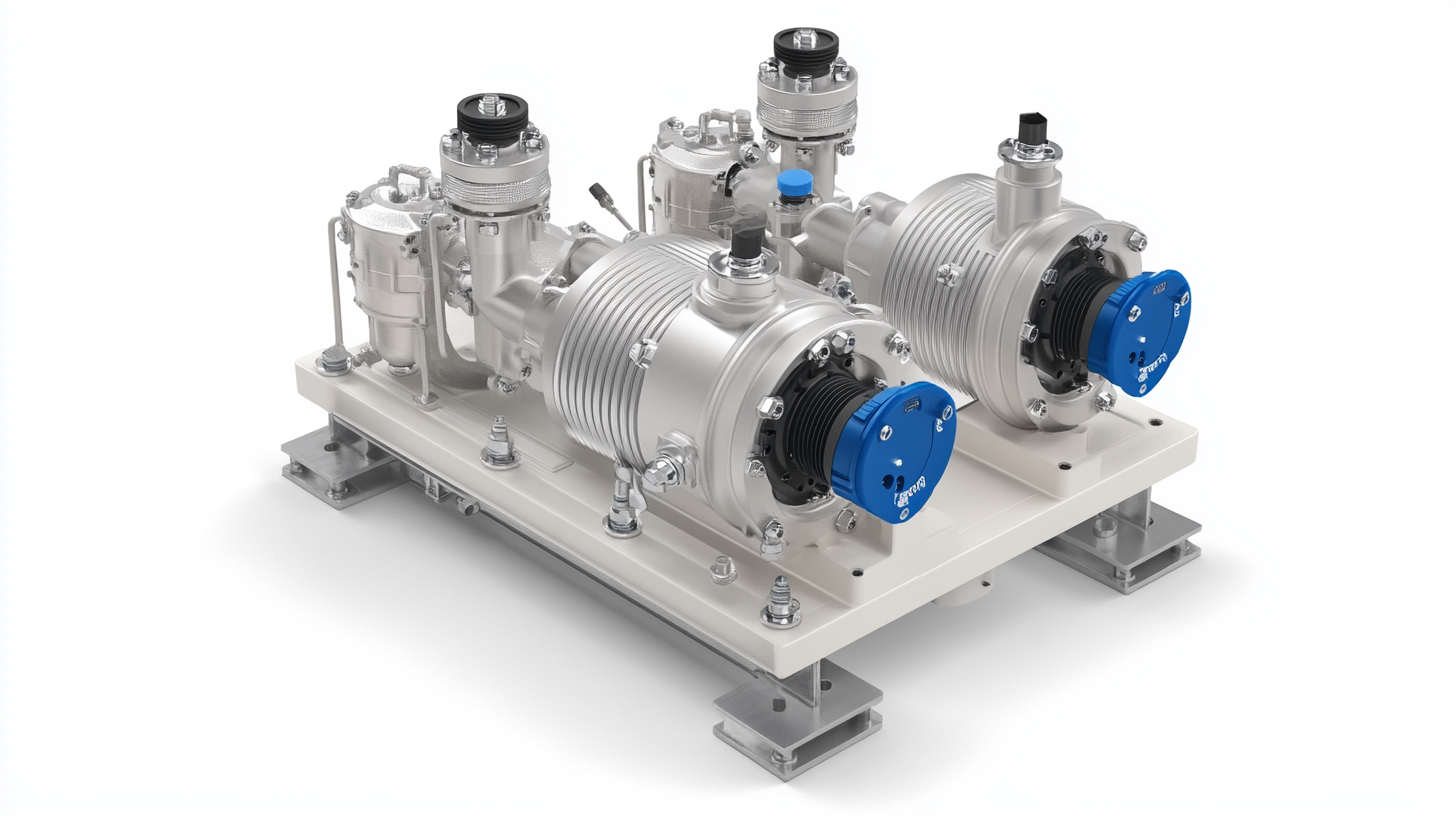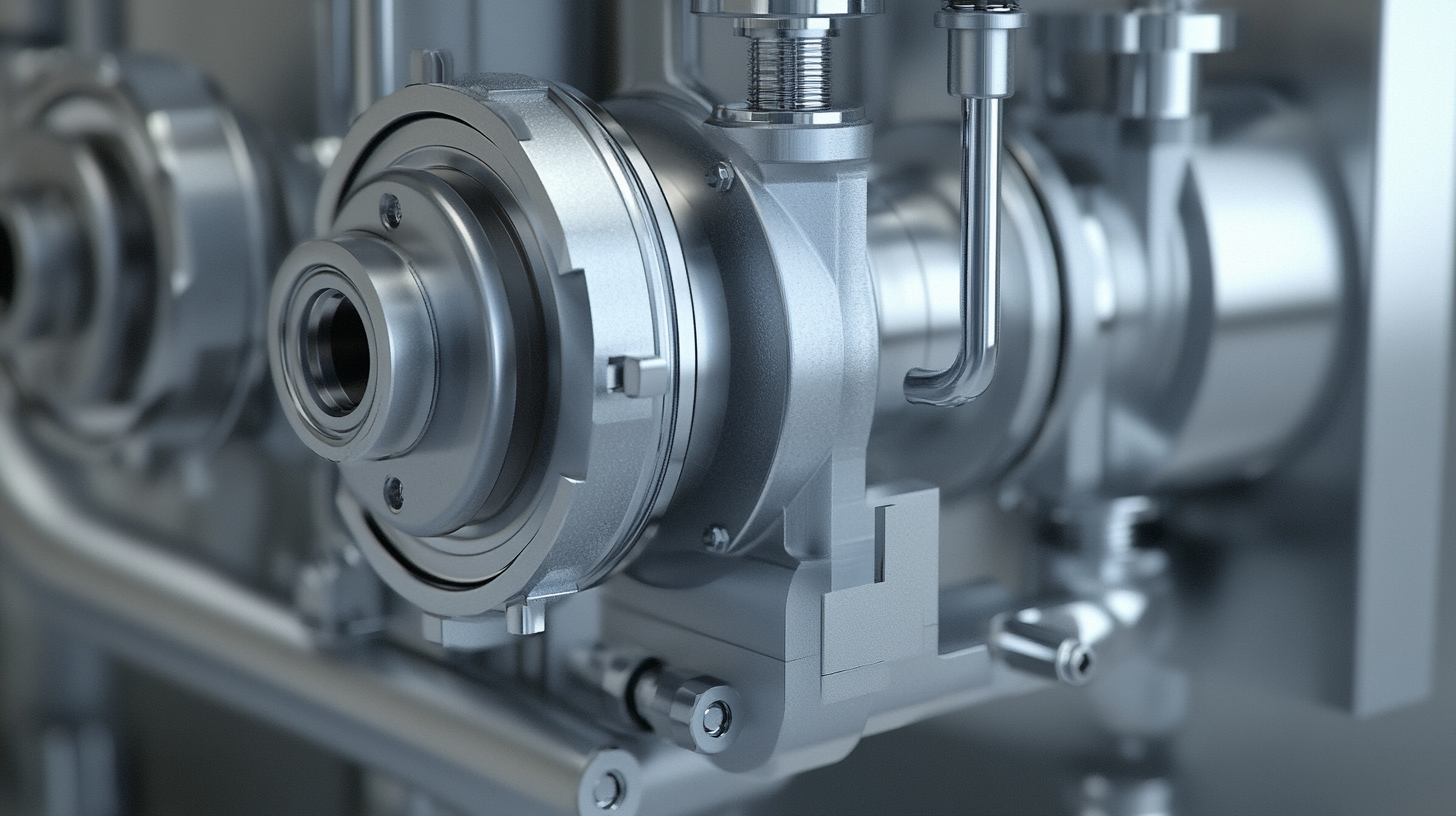


The global diaphragm pump market is expected to witness significant growth, driven by the increasing demand for efficient fluid transfer solutions across various industries. According to a recent report by Research and Markets, the diaphragm pump segment is projected to reach USD 3.18 billion by 2026, with a compound annual growth rate (CAGR) of 5.6% from 2021 to 2026. This rise can be attributed to diaphragm pumps' unique ability to handle corrosive and abrasive materials, making them an ideal choice for applications in sectors such as wastewater treatment, chemical processing, and food and beverage production.
As industries continue to evolve and seek innovative pumping solutions, the importance of identifying reliable suppliers for diaphragm pumps becomes increasingly crucial. The reliability of a supplier can significantly impact not only the quality of the pumps but also the operational efficiency and cost-effectiveness of the projects in which they are utilized. Thus, companies must adopt a strategic approach when researching and selecting suppliers to ensure they meet their diaphragm pump needs effectively and sustainably.

When searching for reliable suppliers for diaphragm pumps, it is crucial to focus on specific qualities that indicate dependability. One of the primary attributes to consider is the supplier's experience in the industry. A supplier with a long-standing history is likely to have established robust relationships with manufacturers and can provide valuable insights into the best products and applications. Additionally, an experienced supplier will have a thorough understanding of the challenges their customers face and can offer tailored solutions to meet varying needs. Another key quality to look for in a dependable diaphragm pump supplier is their commitment to quality assurance. Reliable suppliers will have stringent quality control processes in place, ensuring that every pump meets industry standards and performs consistently under pressure. Certifications from recognized bodies are a good indicator of a supplier’s dedication to maintaining high-quality products. Beyond product quality, suppliers who provide comprehensive warranties and after-sales support show confidence in their offerings and commitment to customer satisfaction. Moreover, transparency in communication is vital when sourcing diaphragm pump suppliers. A reputable supplier should be willing to provide clear information about product specifications, pricing, and delivery timelines. Good communication fosters a healthy business relationship and allows for quick resolutions should any issues arise. By focusing on these key qualities, you can find a supplier who not only meets your diaphragm pump needs but also inspires confidence and reliability in your supply chain.

When searching for reliable suppliers for diaphragm pumps, evaluating their expertise becomes paramount. One essential criterion is industry experience, which often correlates with the ability to understand specific customer needs and provide tailored solutions. Suppliers with a long-standing presence in the market are more likely to have encountered a variety of challenges and scenarios, equipping them with the knowledge to offer effective support and innovative products.
Furthermore, certifications play a critical role in assessing a supplier's credibility. For instance, companies like Siemens have achieved notable certifications such as the Carbon Trust Standard, which reflects their commitment to sustainability and quality standards. Suppliers who maintain relevant industry certifications demonstrate their dedication to professional excellence and adherence to regulations, making them more trustworthy partners in your diaphragm pump procurement process.
In the current landscape, aligning with suppliers who prioritize expertise and certifications not only enhances operational efficiency but also contributes to broader sustainability goals. As industries progressively pivot towards environmentally friendly practices, partnering with suppliers that embody these values can further reinforce your commitment to responsible sourcing and environmental stewardship.

When it comes to procuring diaphragm pumps, the balance between price and quality is crucial. According to a recent report by ResearchAndMarkets, the global diaphragm pump market is projected to reach $5.5 billion by 2026, indicating a growing demand for these reliable devices across various industries. However, with the influx of suppliers, distinguishing the quality of pumps becomes an essential consideration.
Investing in higher-quality diaphragm pumps often leads to lower total cost of ownership over time. A study from the Hydraulic Institute reveals that quality pumps can reduce downtime by 30%, translating to significant savings in operational costs. This statistic highlights the importance of viewing procurement decisions not just through the lens of initial purchase price but also long-term operational efficiency and reliability.
Additionally, it’s essential to recognize the role of material selection and manufacturing processes in diaphragm pump quality. A report from the American Society of Mechanical Engineers states that pumps made from advanced materials can withstand higher pressures and corrosive environments, ensuring a longer lifespan. Choosing suppliers who prioritize quality assurance during manufacturing can mitigate risks associated with pump failure, which could otherwise lead to costly disruptions.
Ultimately, understanding the interplay between price and quality is vital in making informed procurement decisions. By focusing on reliable suppliers who emphasize high-quality standards, businesses can assure optimal performance and durability from their diaphragm pumps, reinforcing their overall operational effectiveness.

When it comes to selecting a reliable supplier for diaphragm pumps, the importance of supplier reviews and customer feedback cannot be overstated. A recent survey conducted by the Industrial Supply Association found that nearly 75% of purchasing decisions are influenced by reviews and testimonials from previous customers. This statistic highlights the critical role that shared experiences play in guiding businesses towards trustworthy suppliers.
Research indicates that suppliers with a high customer satisfaction rating often have better overall performance. According to a study by the Procurement Advisory group, suppliers who receive an average rating of 4.5 stars or higher from customers tend to have a 60% higher on-time delivery rate and a 30% lower defect rate compared to their lower-rated counterparts. These figures suggest that positive feedback is not merely a reflection of customer opinion but a strong indicator of operational reliability and product quality.
Moreover, online platforms and industry-specific forums have become essential tools for businesses seeking to evaluate potential suppliers. The same Industrial Supply Association report found that 68% of buyers relied on online reviews and ratings when researching suppliers. This growing trend emphasizes the need for companies to not only pay attention to the quantity of reviews but also the quality and context, as detailed feedback can reveal insights regarding product performance, customer service, and the suppliers' responsiveness to issues.
When sourcing diaphragm pumps, one critical factor that often distinguishes reliable suppliers is their responsiveness and technical support capabilities. According to a recent report by Pumps & Systems Magazine, 70% of maintenance issues stem from inadequate support following the initial purchase. This highlights the significance of a supplier who not only provides quality products but also offers timely assistance and solutions throughout the lifecycle of the equipment.
A supplier's responsiveness can be gauged by their communication protocols. Industry benchmarks suggest that suppliers should ideally respond to inquiries within 24 hours. Research from the Hydraulic Institute indicates that companies focusing on customer service and technical support can see a significant improvement in client retention rates, with as much as a 25% increase compared to less responsive competitors. This implies that assessing a supplier's support structure should include an examination of their average response times and the availability of dedicated technical support staff.
In addition to responsiveness, evaluating the technical expertise of the support team is paramount. A study from the World Pumps journal found that suppliers with in-house engineering teams are more effective in resolving complex issues, reducing downtime by up to 50%. This capability not only ensures that users receive accurate and efficient solutions but also fosters a partnership-oriented relationship between the supplier and the customer. Ensuring that your diaphragm pump supplier excels in both responsiveness and technical support can ultimately lead to better operational efficiency and enhanced productivity.
